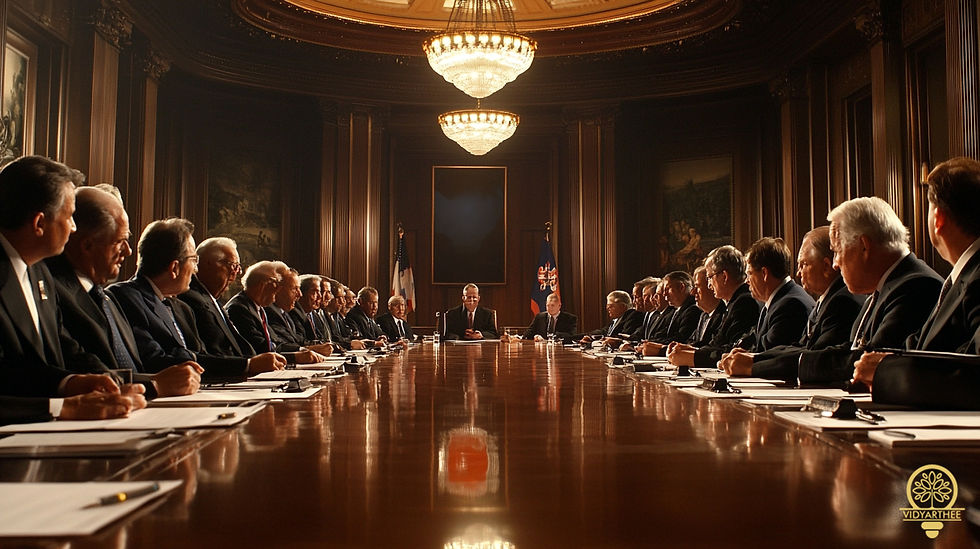Multi-Track Diplomacy: Navigating Dialogue through Formal and Informal Channels
- vidyarthee2021
- Oct 18, 2024
- 2 min read

The first ASEAN-India Track 1 Cyber Policy Dialogue was recently held in Singapore, reflecting the growing significance of structured diplomatic efforts in key sectors like cybersecurity. Diplomacy today is multi-faceted, involving official and unofficial channels. This approach helps countries engage in negotiations, build trust, and address complex issues across multiple levels.
Track 1 Diplomacy: Official Government Dialogue
Track 1 Diplomacy involves formal discussions between governments. High-level officials such as heads of state, diplomats, and ministers participate in these negotiations. Track 1 is often used to develop policies, treaties, and agreements that shape international relations.
Example: Peace negotiations, defense treaties, and official economic summits.
Track 1.5 Diplomacy: Bridging Government and Experts
Track 1.5 Diplomacy occurs when government officials and non-governmental experts come together for informal dialogues. Although less formal than Track 1, these sessions are still aimed at influencing policy or building consensus on key issues.
Example: Expert workshops or conferences attended by both diplomats and think-tank representatives.
Track 2 Diplomacy: Informal Engagement
Track 2 Diplomacy consists of unofficial dialogues conducted entirely by non-governmental experts, academics, or civil society members. These engagements foster communication without the pressure of political constraints and can lay the groundwork for future formal negotiations.
Example: The 1993 Oslo Accords began as informal Track 2 discussions, which later transitioned into formal Track 1 talks between Israel and Palestine.

Importance of Multi-Track Diplomacy
Builds Trust: Engaging in unofficial channels can ease tensions and build trust before official negotiations.
Informs Policy: Inputs from non-governmental experts and academics help governments develop more nuanced policies.
Adaptability: Multiple tracks allow diplomacy to continue even during times of political tension.
Conclusion
The evolving practice of multi-track diplomacy enables nations to communicate through both formal and informal channels, ensuring a more dynamic and inclusive approach to international relations. Whether it’s official government negotiations or informal expert dialogues, each track plays a critical role in maintaining global stability and fostering cooperation.

تعليقات